Wall Street’s main indexes were subdued at the open as investors wait on Nvidia’s results, which have the power to move markets as sharply as the Fed.
The US chip manufacturer led the recovery from April’s lows, crossing the $4 trillion valuation mark in July to become the world’s largest company as investors raised bets on the global demand for AI infrastructure.
But traders have lately grown fearful that the tech sector, which now makes up nearly 50 per cent of the S&P 500, could be entering bubble territory.
Shares of Nvidia were down 0.43 per cent as trading opened ahead of its earnings, which will arrive after the closing bell. Options traders are pricing in about a $260 billion swing either way in the chipmaker’s market value after the results.
The downbeat mood was reflected across Wall Street, with the S&P 500 off 0.04 per cent, while the Nasdaq shed 0.25 per cent.
Cracker Barrel was the big mover: the restaurant chain gained 4.8 per cent after saying it would stick with its decades-old logo, as plans for a new one faced social media backlash.
Warehouse REIT ends Tritax talks, clears path for Blackstone takeover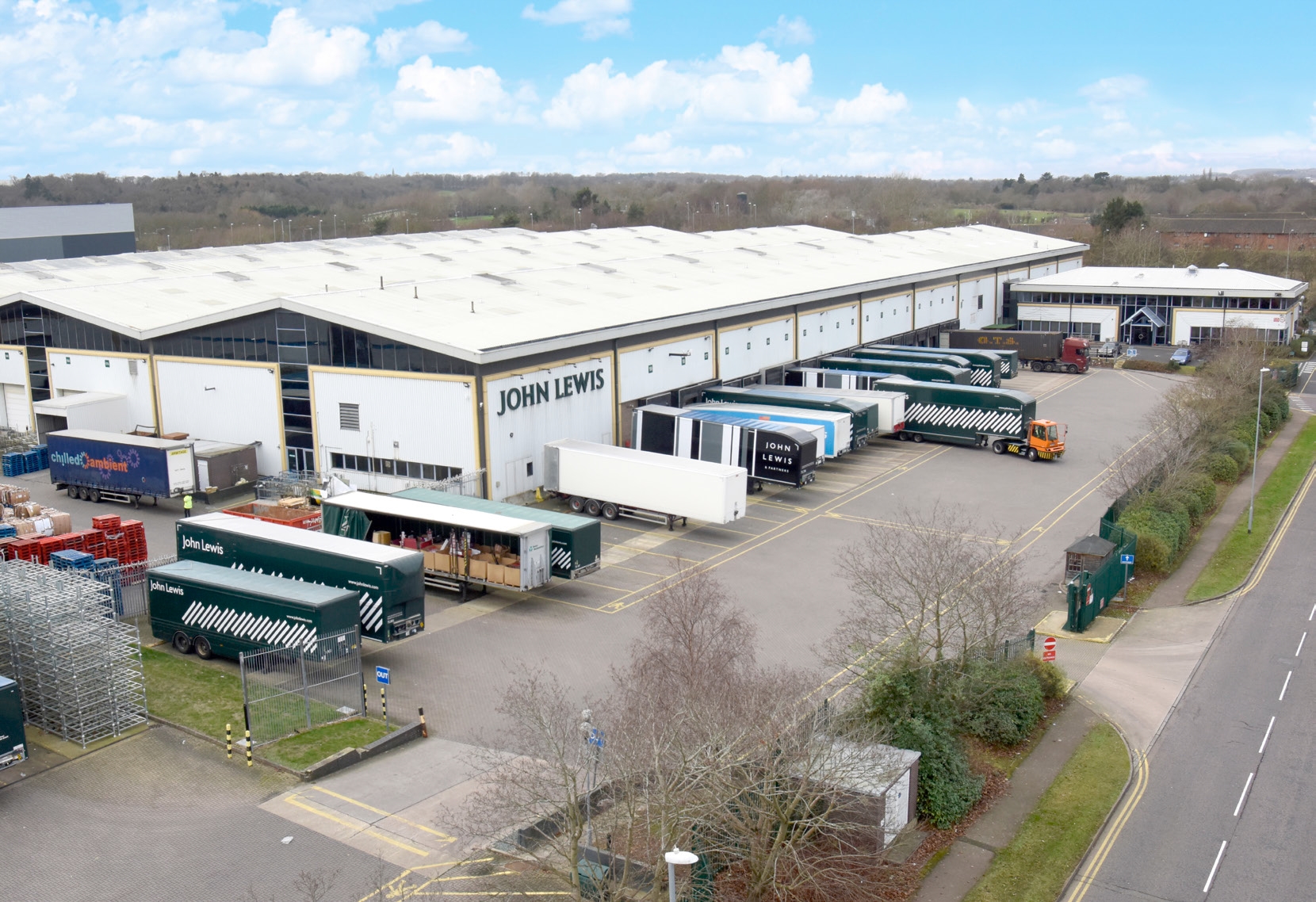
Warehouse REIT units in Northampton that it let to John Lewis
Warehouse REIT, the sheds landlord, has formally ended takeover talks with its rival Tritax Big Box REIT, ending a months-long bidding battle and paving the way for its $489 million takeover by the US private equity company, Blackstone.
Warehouse REIT said that Tritax had confirmed it will not raise its £485 million offer, drawing a line under the prolonged fight.
Blackstone said it directly or indirectly owned or had received undertakings of support for its offer through shares representing roughly 34.33 per cent of Warehouse REIT.
The takeover is the latest in a wave of bids as bargain-hunting overseas buyers target the UK’s relatively underpriced assets and relative market stability.
Abercrombie lifts sales forecast despite tariff costs
Abercrombie & Fitch has raised its annual sales forecast, betting that price rises will not deter affluent female shoppers from its Hollister dresses and denims.
The US company, whose jeans sell at an average of $100, is confident it will be able to ride the wave of cost inflation alongside other aspirational brands like Birkenstock and Bugaboo.
Abercrombie’s key sourcing countries include Vietnam, Indonesia, and Cambodia, which are subject to tariffs in the range of 10 per cent to 20 per cent: it estimates that tariff-related costs will be about $90 million.
The company now expects net sales for 2025 to grow in the range of 5 to 7 per cent, compared with its prior forecast of a 3 to 6 per cent increase. It posted net sales of $1.21 billion for the August quarter, slightly above analysts’ average estimate of $1.20 billion.
Shares of the company were down about 3 per cent in volatile pre-market trading.
Boeing to deliver 737 Max planes to Ryanair early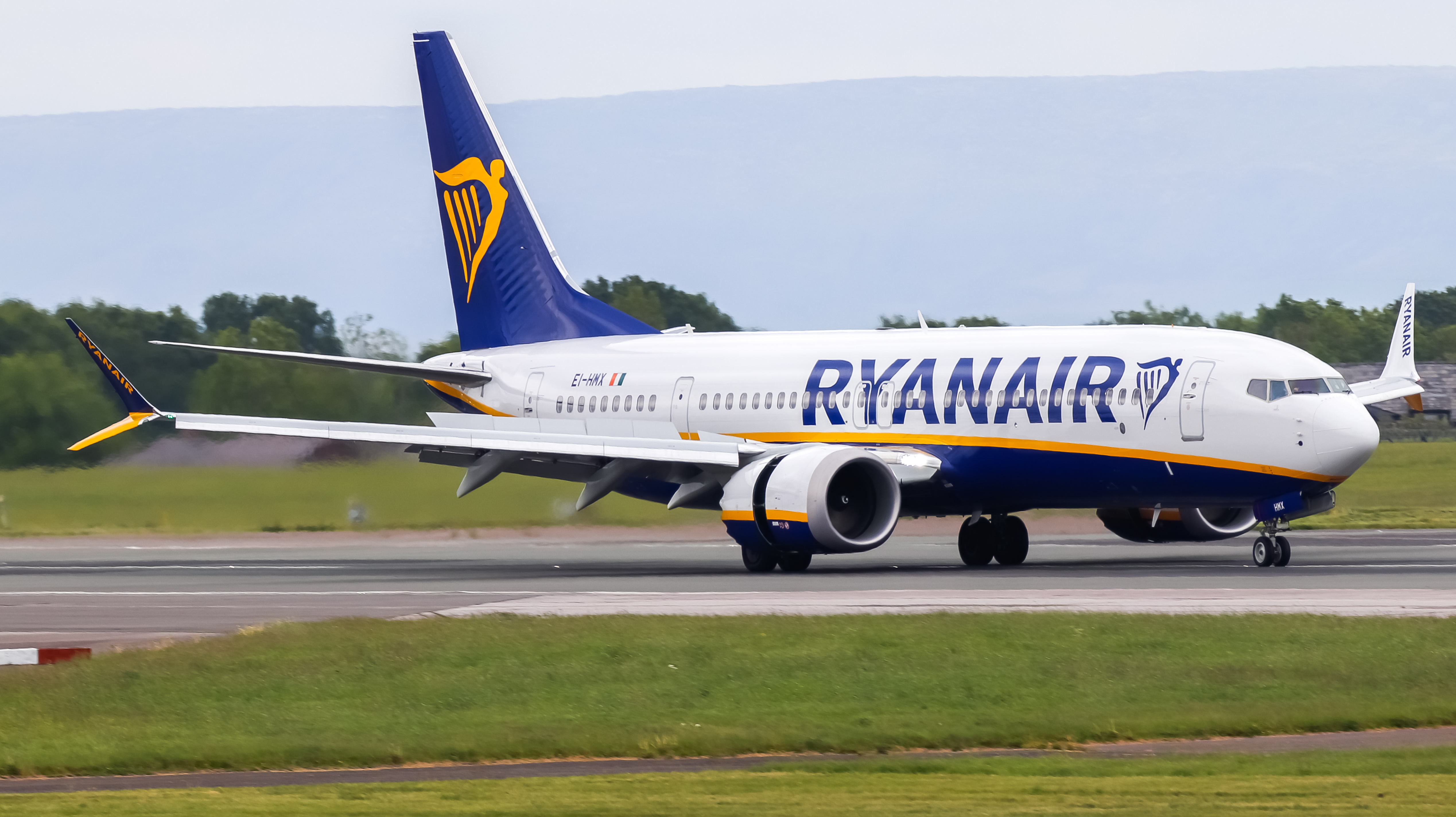
One of Ryanair’s Boeing 737 Max aircraft
GETTY IMAGES
Michael O’Leary, the Ryanair chief, expects to be able to offer more flights this year after Boeing brought forward deliveries to Europe’s biggest airline.
He said 25 new Max 8 aircraft are expected by October instead of spring next year, allowing the budget carrier to take advantage of the Christmas travel season.
“[The deliveries] give us a bit more capacity, and we feed that capacity by lowering airfares,” O’Leary said. He did not specify which routes the planes would be allocated to.
Boeing’s production has been knocked off track after a mid-air panel blowout on a new 737 Max in January exposed widespread production quality and safety problems.
Retailers warn of weak consumer spending
Retailers also told the CBI that they expected transactions to drop in September as well
ANDREW MATTHEWS/PA
Retail sales extended their decline over the summer, prompting high street businesses to warn of weak consumer spending in the coming month.
An index of retail spending produced by the CBI, the business lobby group, registered at a weighted balance of -32 per cent in August. Although that is up slightly from -34 per cent in July, the survey still suggested that households remained cautious with their purchases. Retailers also told the organisation that they expected transactions to drop in September too, albeit at a slower pace.
The CBI research showed that employment in the retail sector continued to decline in August — high street firms have been hit hard by the £25 billion increase in employers’ national insurance contributions.
Welsh Water appoints new boss after leak scandal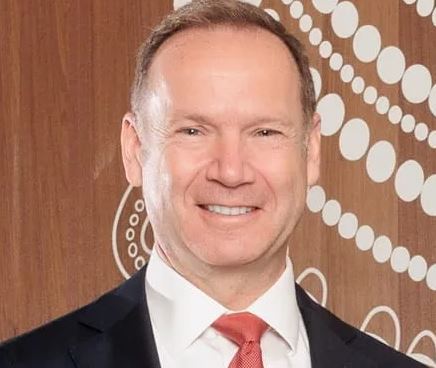
Welsh Water has hired a new chief executive to continue its recovery from a scandal which saw the supplier pay out £40 million for misleading regulators over the scale of leaks.
Roch Cheroux, who headed Australia’s largest water company, Sydney Water, from 2019 to March this year, will replace Peter Perry when he retires next year.
The utility, which supplies water to 3 million people across Wales, Deeside and Herefordshire, agreed to pay nearly £40 million to customers in March last year after Ofwat found it misreported leaks and water usage over a five-year period. The regulator said it was “indefensible” that the company “misled customers and regulators on its record of tackling leakage and saving water”.
The company, which operates as a not-for-profit business, was blocked by the watchdog last year from using taxpayer money to fund £163,000 worth of bonuses for executives.
Cheroux said his appointment comes at a “pivotal time for the company and the sector” amid increased scrutiny over environmental impacts and regulatory reforms. He added that Welsh Water’s “unique” model was a “significant factor” in his decision to move.
Wagamama owner eyes bid for struggling Costa Coffee
The battle for Costa is warming up. Sky News reports that Apollo Global Management, the investment group behind Wagamama, has expressed interest in taking over the UK’s largest coffee shop chain.
Coca Cola bought Costa for £3.9 billion in 2018 in an effort to move beyond fizzy pop, but growth has not matched expectations weighed down by the pandemic, fierce competition and rising coffee bean prices. It now has 2,700 coffee shops in the UK and Ireland and 1,300 abroad.
At an analyst call in July, Coke’s boss James Quincey said Costa was “not where we wanted it to be from an investment hypothesis point of view”, prompting speculation that the soft drinks company was considering putting the chain up for sale.
Reports at the weekend suggested that talks have been held with a “small number” of potential bidders, noting that the brand may command a price of only £2 billion.
London’s leading share index lost early gains to trade flat just before noon as corporate news offset concerns about US interest rates after President Trump escalated his attack on the Federal Reserve.
The FTSE 100 dipped 2.96 points, or 0.03 per cent, to 9,262.84. The retailer JD Sports Fashion was the biggest riser, up 2.25 per cent. It had traded up 5 per cent earlier but has lost gains after a 3 per cent fall in second-quarter like-for-like sales and signs of an improvement in the United States.
National Grid, the energy distributor, gained 1.58 per cent.
Banks remained among the fallers after a sell-off by investors across Europe. The Stoxx 600 banks index fell on concerns about Fed interest rate cuts and risk factors such as the renewed rise in inflation. NatWest was the biggest faller, down 2.54 per cent. Barclays and Standard Chartered lost 1.54 per cent and 1.44 per cent respectively.
Lego hits record sales boosted by new construction sets
Lego’s Botanicals collection
Lego sales hit a fresh record in the first half of this year as the Danish toymaker launched a slew of new construction sets.
Revenues at the family-owned company rose 12 per cent to a record high of 34.6 billion Danish kroner (£4 billion), driving a 10 per cent jump in operating profit to 9 billion kroner (£1.04 billion).
Lego launched a record 314 new sets in the first half of the year with bestsellers including ranges such as Lego City, Technic, Star Wars and Botanicals, the plastic plant models which target a more mature audience.
In April, Lego opened a new factory in Vietnam — its sixth globally — to support growth in the Asia-Pacific region. It is also investing more than $1.5 billion building a factory in Virginia, US, and has opened a new Americas head office in Boston.
US tariffs force Mitsubishi to cut earnings forecast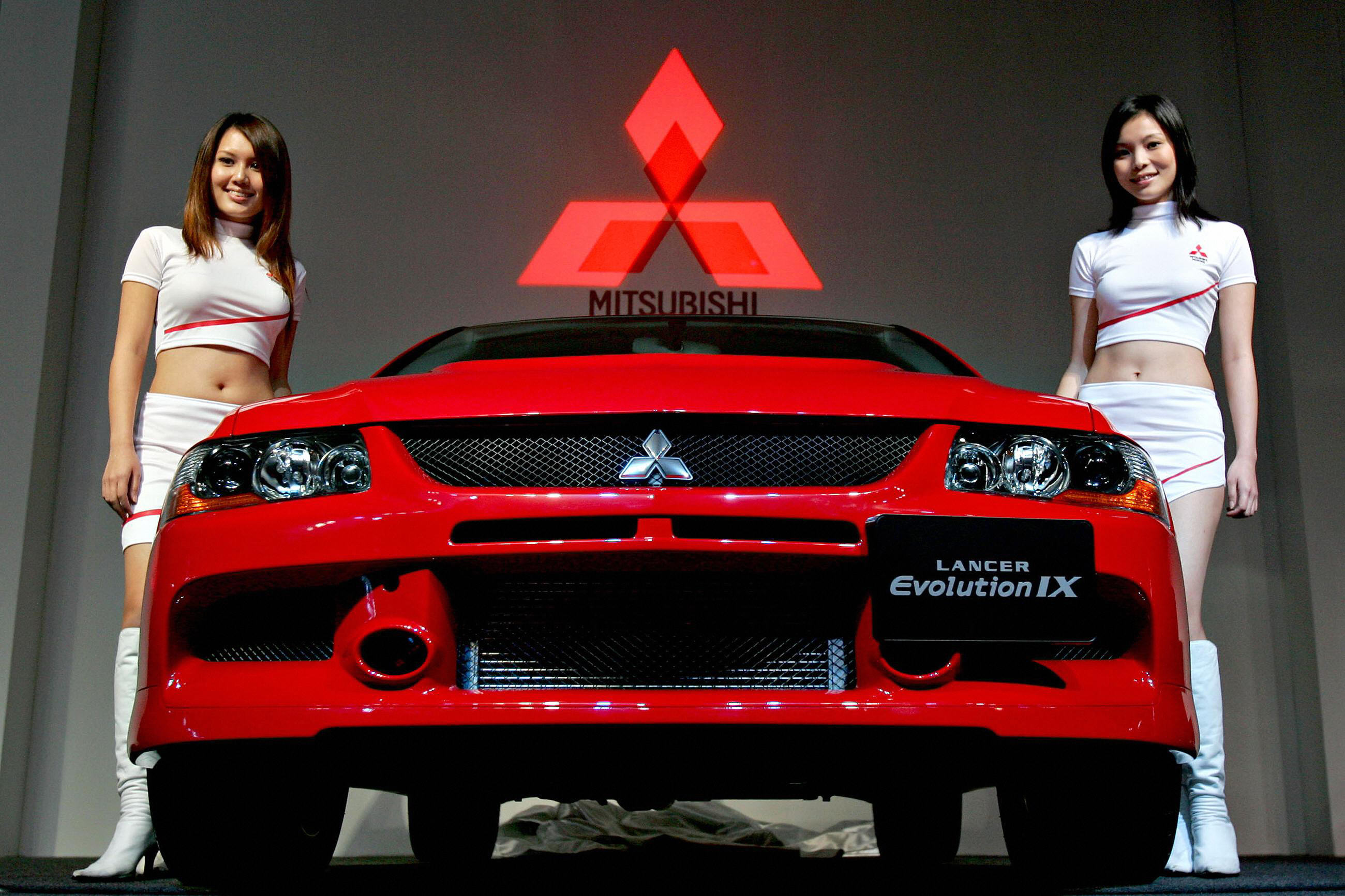
A Mitsubishi Lancer Evolution IX
TENGKU BAHAR/GETTY IMAGES
The Japanese carmaker Mitsubishi has cut its operating profit forecast by almost a third, citing the knock-on impact of US import tariffs on global markets.
It now expects to post an operating profit of 70 billion yen ($475 million) for the year to next March, down from its previous estimate of 100 billion yen ($675 million). The company’s shares fell 2 per cent in Tokyo after the update.
Takao Kato, the chief executive, said competition in non-US markets has intensified as companies seek to offset the impact of President Trump’s tariffs, putting pressure on margins. The company said that rival carmarkers have offered discounts in markets such as Vietnam, Germany and Australia to offset US losses.
Mitsubishi’s forecast assumes that the 15 per cent tariff rate agreed by Tokyo and Washington in a bilateral trade deal last month will take effect from October.
Bain weighs $1.4bn sale of Canada Goose
The US-listed shares of Canada Goose rose in pre-market trading
GETTY
Canada Goose’s controlling shareholder, Bain Capital, is reported to have received bids to take the luxury coat manufacturer private at a valuation of about $1.4 billion.
The Boston-based private equity group, which acquired a majority stake in Canada Goose in 2013, is looking to offload its holding and Goldman Sachs is advising on the sale. US-listed shares of Canada Goose were up about 9 per cent in pre-market trading, having risen about 21 per cent so far this year. The company is valued at $1.18 billion, according to LSEG data.
CNBC said that the private equity firms, Advent International and Boyu Capital, have made verbal offers to buy the company, best known for its parkas which typically cost between £500 and £2,000 and have become a status symbol in hip-hop and rap culture.
Canada Goose, Goldman Sachs and the interested parties did not immediately respond to Reuters requests for comment, while Bain declined to comment.
ONS data shows renewed inflation pressure
A closely-watched measure of inflation rose to a two-year high of 1.9 per cent in June, up from 1.3 per cent in May, according to preliminary official data, adding to signs of inflationary pressures facing the British economy.
The Office for National Statistics (ONS) suspended the publication of producer output price inflation (PPI) data in March after discovering calculation errors dating back to 2020. Today’s figures represent interim data before regular publication resumes in October.
Producer input prices in the year to June were down by 1 per cent, which the ONS said was driven by a 24.1 per cent annual drop in the cost of crude oil and natural gas. Producer price data is used by economists, including those at the Bank of England, to judge the strength of underlying inflationary pressures in the economy and their likely impact on consumer prices.
British CPI rose to an 18-month high of 3.8 per cent in July — the highest among major advanced economies — and the Bank of England forecasts it will reach 4 per cent in September.
FTSE reshuffle: indicative changes
FTSE Russell, the global index provider, has revealed indicative changes to the FTSE 100 and FTSE 250 based on data as of last Friday.
The actual review of the FTSE UK Index Series will be conducted using data after the market close on Tuesday, September 2, with the confirmed changes to be announced the following day.
Hochschild shares drop 15%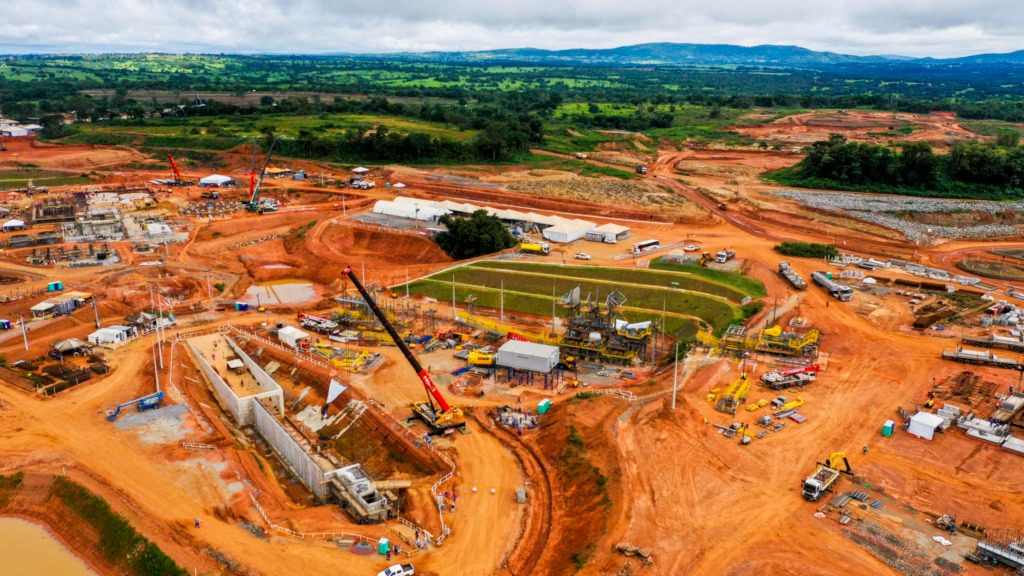
Hochschild’s Mara Rosa gold mine in Brazil
HOCHSCHILD MINING
Hochschild’s shares have tumbled 15 per cent to 261p after the FTSE 250 gold miner more than halved its full-year production forecast for its Mara Rosa mine in Brazil, months after a shutdown due to lacklustre gold output.
The mine has faced contractor and weather-related disruptions, leading to production delays and reduced output, while costs continued to climb. Production at the mine is now expected to reach only 35,000-45,000 ounces this year, down from its previous forecast of 94,000-104,000 ounces.
RBC Capital Markets analysts cut Hochschild’s price target to 320p from 340p. They said: “Although the guidance downgrades do not catch us by surprise, the cost levels guided for 2025 drive a recalibration to our future forecasts.”
Rio Tinto chief simplifies miner’s structure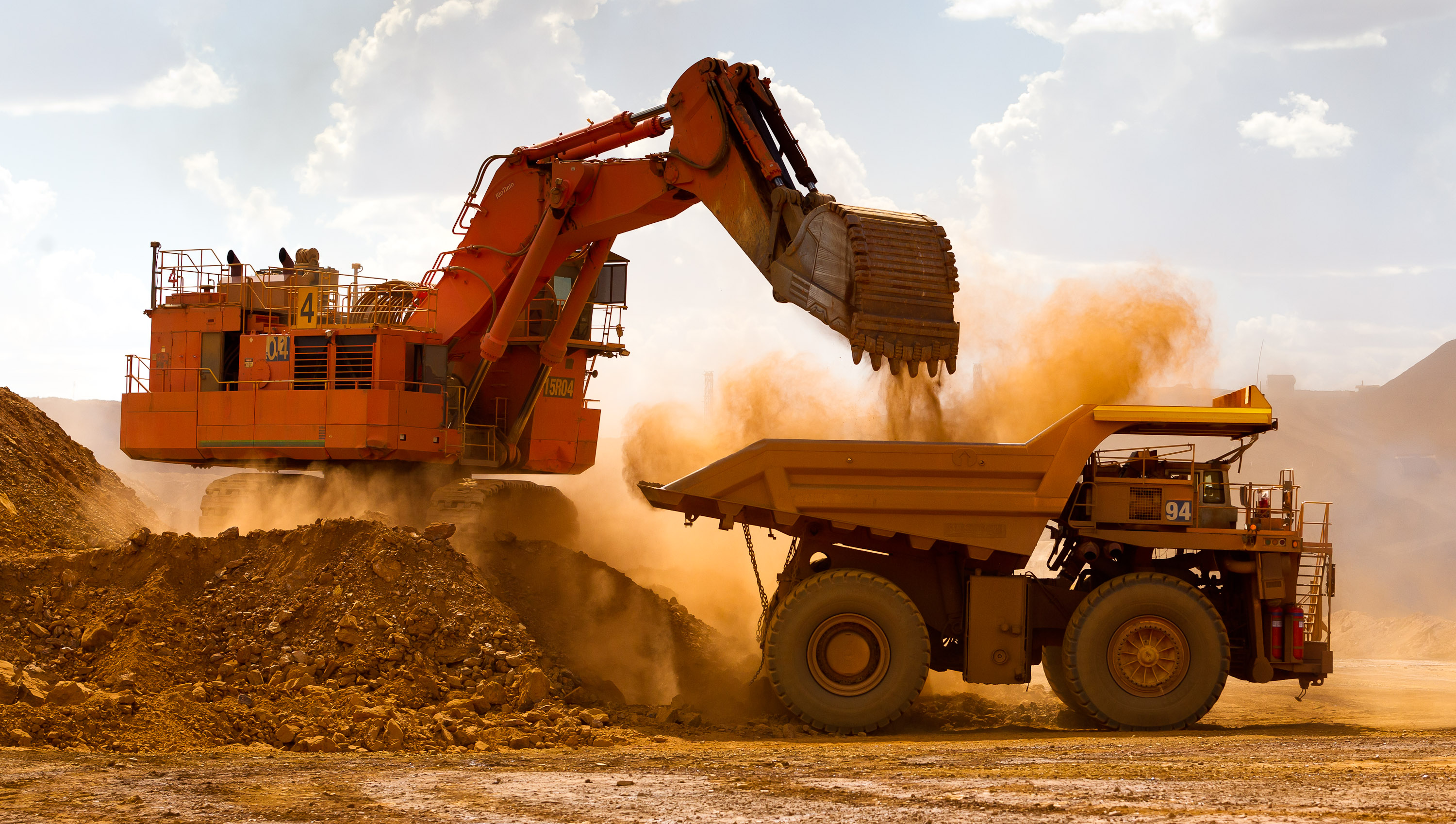
Rio Tinto Group’s West Angelas iron ore mine in Pilbara, Australia
IAN WALDIE/GETTY IMAGES
The new chief executive of Rio Tinto has announced plans to simplify and streamline the mining group into three businesses: iron ore, aluminium and lithium, and copper.
Simon Trott, the former head of Rio Tinto’s iron ore business, has named Matthew Holcz as chief executive of the newly unified division, which brings together the company’s operations in Western Australia and Canada. The division will also include the Simandou project in Guinea when it is completed.
Jerome Pecresse, who leads the aluminium division, will also take on lithium, and Katie Jackson will continue to head the copper division, which is focused on ramping up production at the Oyu Tolgoi mine in Mongolia.
Mike Ashley takes stake in Rumble Rooms owner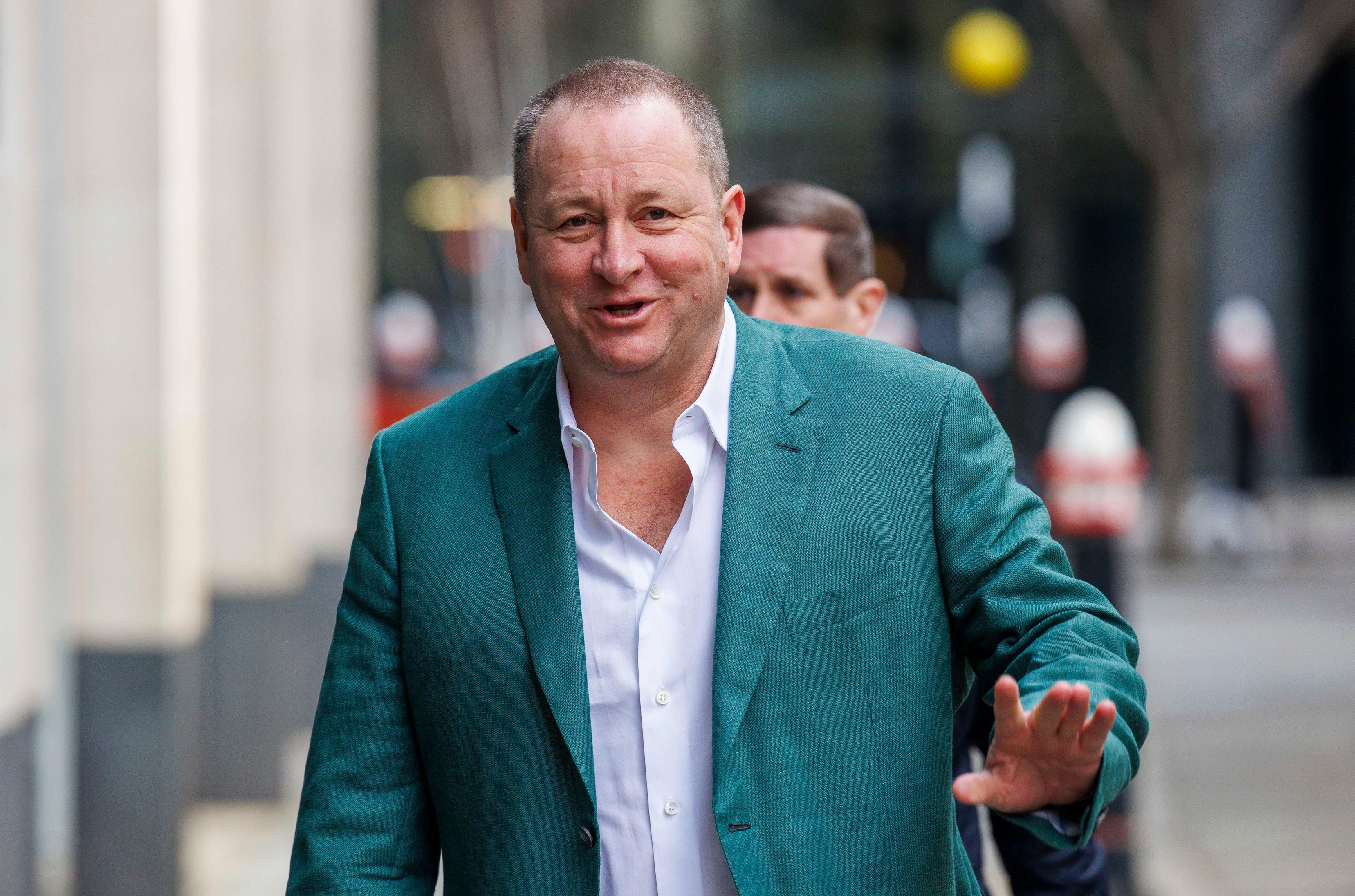
Frasers Group, the sportswear and fashion retailer owned by the entrepreneur, Mike Ashley, has entered the leisure activity market with the acquisition of a minority stake in We Do Play, the operator of venues including immersive experiences such as Activate, Rumble Rooms, Flip Out, and Putt Putt Social.
Frasers did not disclose the size of its investment, but said the partnership with We Do Play offered synergies for its existing portfolio by strengthening its position as a leading retail destination. Frasers plans to roll out more than 40 new Activate locations across the UK in the coming years.
Utility stocks buoy FTSE 100
London’s leading share index rose this morning helped by utility stocks after the energy regulator announced an increase in the price cap.
The FTSE 100 rose 15 points, or 0.16 per cent, to 9,281.07.
National Grid, the energy distributor, gained 1.96 per cent, while the power suppliers, SSE added 1.56 per cent respectively.
The biggest rise in the index was JD Sports Fashion, up 5 per cent after the retailer showed signs of stabilisation in the United States, despite a fall in second quarter sales.
Banks were among the fallers after a sell-off by investors in the sector across Europe. The Stoxx 600 banks index fell 1.3 per cent on concerns about Fed interest rate cuts and risk factors such as the renewed rise in inflation. NatWest was the biggest faller, down 1.54 per cent. Barclays and Standard Chartered lost 1.2 per cent and 1.15 per cent respectively.
Thames Water agrees payment plan for fine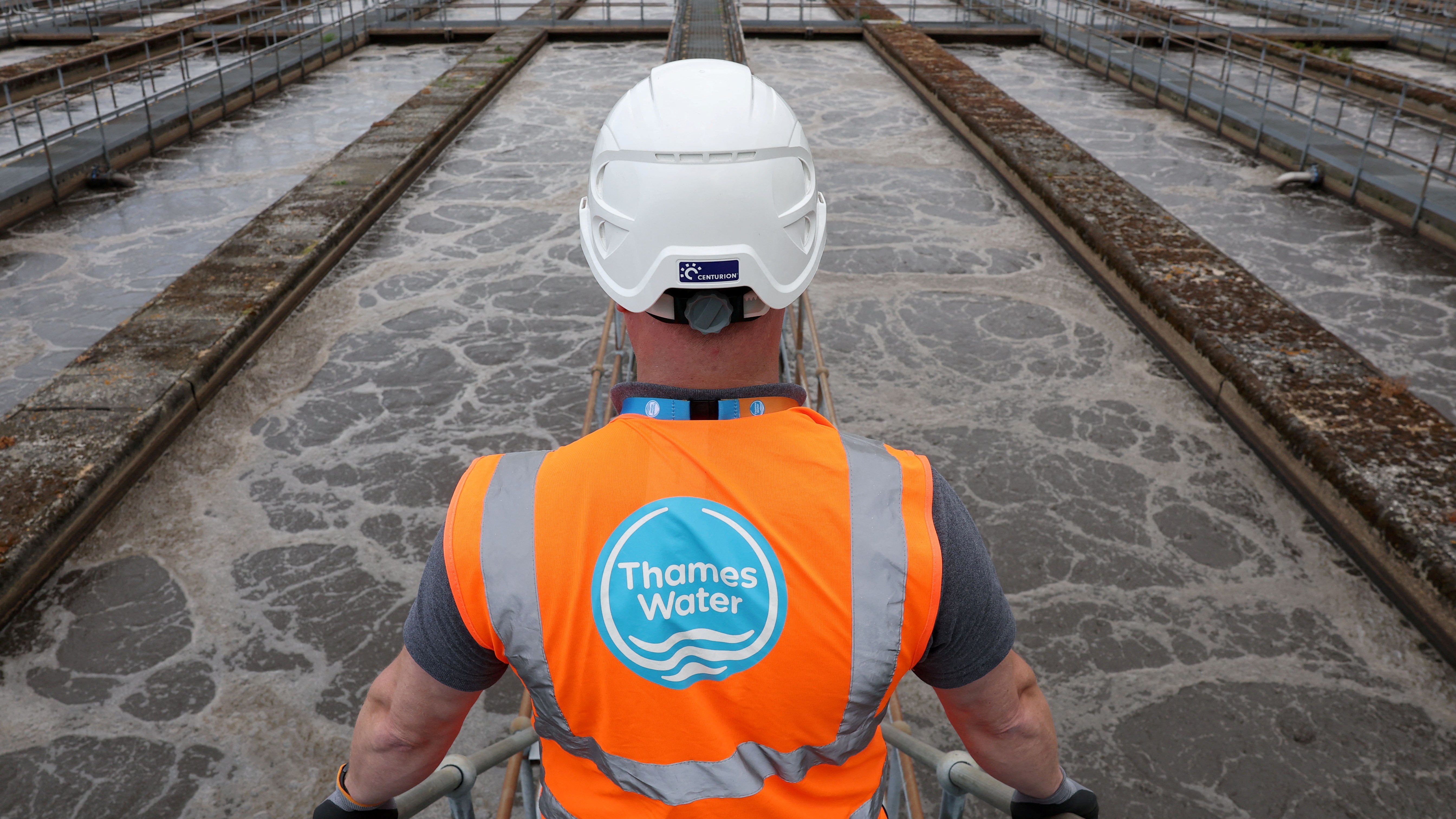
The troubled water company said it has agreed a payment plan with Ofwat, the regulator, which imposed a record £123 million fine on the business in May after two separate investigations.
Thames Water, the UK’s largest water group, will pay an initial 20 per cent in the coming weeks with the rest of the balance to follow as it continues to try to agree a deal with creditors to avoid temporary government nationalisation.
In other corporate news:
Prudential: The Asia-focused insurer announced that it is to buy back a further $1.1 billion of its own shares alongside interim results and signalled that it planned to pay higher dividends over the next two years. The London and Hong Kong-listed group announced that adjusted profit before tax rose 6 per cent to $1.64 billion in the six months to the end of June, up from $1.54 billion over the same period last year.
Hochschild Mining: Alongside scheduled interim results the FTSE 250 gold miner has cut the full-year production forecast for its Mara Rosa mine by more than half, just months after issuing a temporary suspension of the site due to lacklustre gold output. The company now expects 35,000-45,000 ounces of gold production from the Brazilian mine this year, down from its previous forecast of 94,000-104,000 ounces.

LUKE MACGREGOR/GETTY IMAGES
Like-for-like sales at the fashion retailer fell 3 per cent in the 13 weeks to August 2 as the group’s UK business came up against a tough comparative period that included the Euros football tournament.
Despite the fall, JD Sports insisted that it expected full-year results to “be in line with current market expectations” although it cautioned that it continued to “assess the potential impacts from US tariffs”.
The retailer also announced plans to buy back £100 million of its own shares.
Shares in JD Sports have fallen 34 per cent over the past year.
Ofgem energy price cap: what is being said
Tim Jarvis, director-general of markets at Ofgem: “While today’s change is below inflation, we know customers might not be feeling it in their pockets. There are things you can do though — consider a fixed tariff as this could save more than £200 against the new cap.”
Gillian Cooper, director of energy at Citizens Advice: “With millions of households already in debt as the colder months draw in, this news offers no comfort. The government has made welcome changes to expand the number of people who’ll receive support with their energy bills this winter, but it’s not enough to turn the tide. Our advisers are bracing for more calls as people struggle to top up their meters and pay the gas bill.”
Michael Shanks, energy minister: “We know that any price rise is a concern for families. Wholesale gas prices remain 75 per cent above their levels before Russia invaded Ukraine. That is the fossil fuel penalty being paid by families, businesses and our economy. That is why the only answer for Britain is this government’s mission to get us off the rollercoaster of fossil fuel prices and onto clean, homegrown power we control, to bring down bills for good.
“At the same time, we are determined to take urgent action to support vulnerable families this winter. That includes expanding the £150 Warm Home Discount to 2.7 million more households and stepping up our overhaul of the energy system to increase protections for customers.”
Ofgem announces £35-a-year rise in energy price cap
Energy prices for most households in Britain are to rise by 2 per cent from October, taking a typical annual bill to £1,755.
Ofgem, the energy regulator, announced the bigger-than-expected £35-a-year increase to the level of the price cap for the final three months of the year. It said the rise was driven by an “increase in electricity balancing costs”, such as when the National Energy System Operator has to pay remote wind farms to switch off and gas plants to fire up because of constraints on the power network.
The increase also reflects households funding the expansion of the Warm Home Discount scheme, which will help a further 2.7 million households with discounts of £150 a year. The change to the price cap is still relatively small by recent standards, with households having seen a drop of 7 per cent or £129 a year from July.
Almost two thirds of households in Britain remain on tariffs covered by the cap, which was introduced by the Conservative government in 2019 and limits the price suppliers can charge for each unit of gas and electricity for standard tariffs.
Cornwall Insight, the energy consultancy, had predicted a 1 per cent or £17 increase to £1,737 a year, while BFY, another consultancy, had predicted a 1 per cent or £20 decrease to £1,700 a year.
China’s industrial profits decline for third month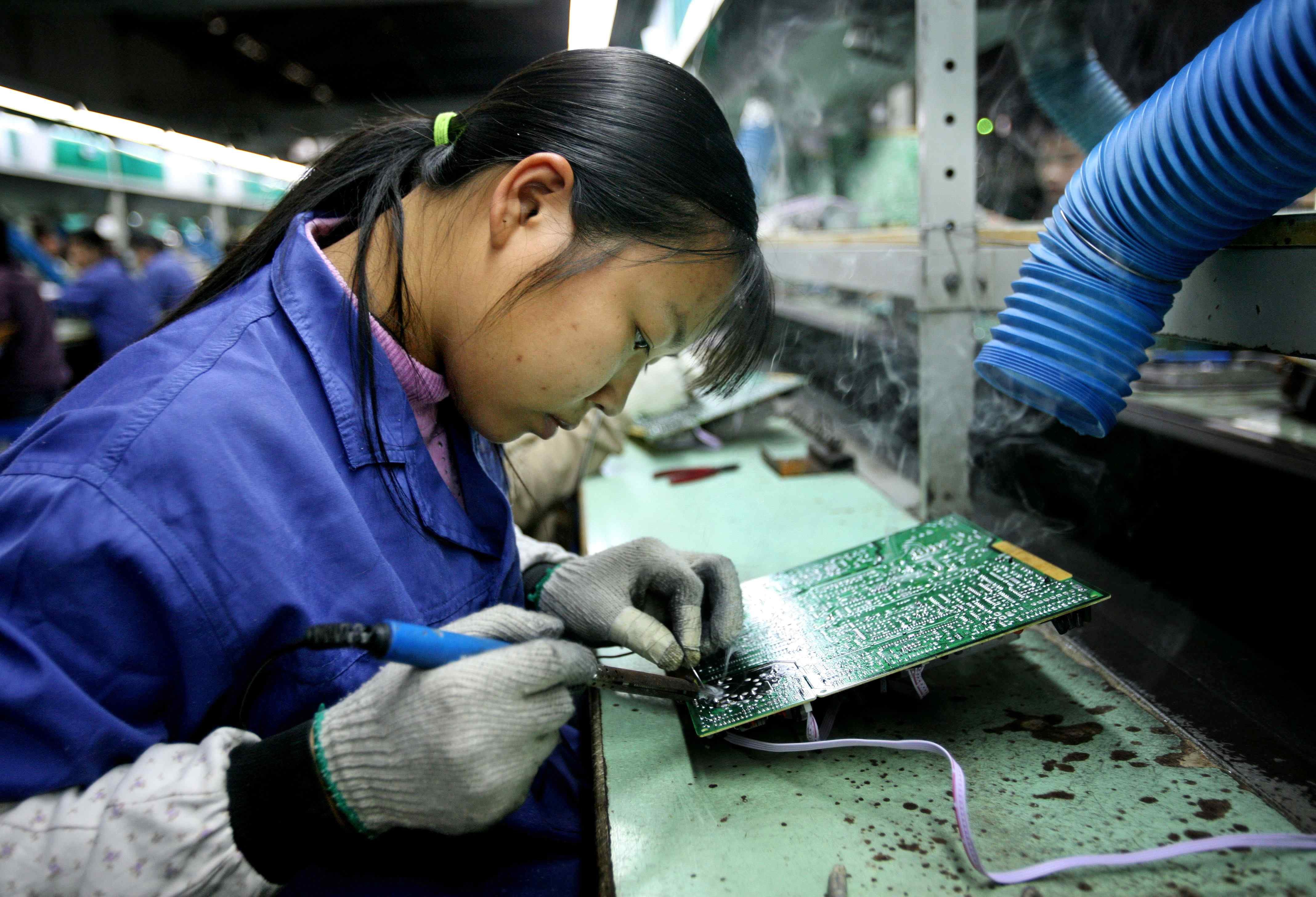
A TV factory in southern China
REINHARD KRAUSE/REUTERS
Industrial profits in China fell for a third month in a row in July in the face of subdued demand and factory-gate deflation despite attempts to bolster the economy.
Exports beat expectations last month but disappointing indicators have kept pressure on Beijing to roll out more stimulus. The introduction of measures to boost domestic consumption and curb price wars has yet to yield significant results amid deflation and a prolonged housing downturn.
Profits at China’s industrial companies fell 1.5 per cent in July from a year earlier, after a 4.3 per cent decline in June, National Bureau of Statistics data showed today.
Trump’s 50% tariff for India comes into force
Modi insists he will not compromise on the interests of India’s fishermen, who are facing a severe fish scarcity
ELKE SCHOLIERS/GETTY IMAGES
Brent crude prices were trading flat as President Trump’s doubling of tariffs on goods from India to as much as 50 per cent came into force today in response to the country’s purchases of Russian oil.
India, the world’s third-largest crude consumer, had increased its buying of Russian oil after the invasion of Ukraine as western sanctions led Russia to discount its cargoes.
The benchmark Brent crude futures contract on one-month delivery was unchanged at $66.70 a barrel after dropping about 2 per cent yesterday.
Indian refiners had reduced purchases of Russian crude after the US tariff announcements and stricter European Union sanctions. However, state-owned refiners have now resumed buying Russian supplies.
India’s prime minister, Narendra Modi, insists he will not compromise on the interests of India’s farmers and fishermen, even if it meant “a very heavy price”, and labelled the tariffs “unfair, unjustified and unreasonable”, accusing Washington of double standards.

